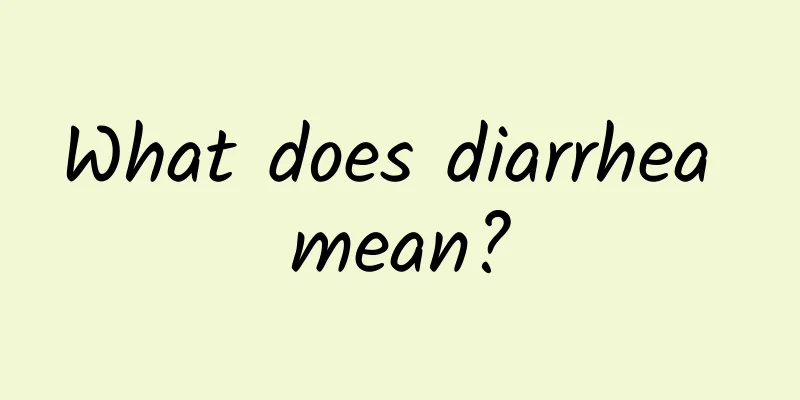There is something growing at the "hole", please remove it immediately

|
A common saying among dentists is: "Small wisdom teeth, big trouble." Indeed, although it is just a small wisdom tooth, it can cause 7 diseases to the body, even cancer! Generally speaking, wisdom teeth appear very late. The appearance of wisdom teeth represents that a person's physical and psychological aspects are approaching maturity, so they are called "wisdom teeth", or "wisdom teeth" for short! In medicine, wisdom teeth are called third molars, which are the eighth teeth counting inward from the gap between the two front teeth. Wisdom teeth are the last permanent teeth to grow out of the 32 permanent teeth in humans and are located at the back of the upper and lower dental arches. One wisdom tooth brings 7 diseases 1. Tooth decay Impacted or misplaced wisdom teeth can easily cause food debris to become stuck between the second molars and wisdom teeth and in the periodontal gaps, which are difficult to remove and often lead to tooth decay. According to a survey, the average caries prevalence rate at the cervical area of the mandibular second molars is 16.4%, and there are significant differences in the caries prevalence rates at different age stages, ranging from only 3.7% at the age of 20 to as high as 27% at the age of 50. It can be seen that removing impacted or misplaced wisdom teeth is the key to preventing caries of second molars. 2. Malaligned Teeth The age of 14-18 is the most active period for the eruption of wisdom teeth. The driving force of the eruption movement of wisdom teeth is often one of the main causes of crowded and uneven teeth. The continuous driving force of this eruption movement of 4 to 5 grams is enough to affect the second molar. Therefore, it is more common for the second molars to be dislocated and twisted. The dislocation of the second molars will reduce the contact area between the upper and lower jaws, and the chewing function of the person will be significantly reduced. 3. Craniomandibular disorders The impaction or dislocation of mandibular wisdom teeth often causes occlusal interference with the maxillary second molars and leads to pathological retraction of the mandible, which is one of the causes of craniomandibular disorders. The main clinical manifestations are clicking, pain and abnormal mandibular movement in the temporomandibular joint, pain in the masticatory muscles, tinnitus, tongue pain and other symptoms. Many patients have improved their craniomandibular disorders after removing impacted or misplaced wisdom teeth. 4. Oral mucosal diseases The gums and buccal mucosa of impacted and misplaced wisdom teeth may suffer pathological damage such as ulcers, erosions, abnormal tissue proliferation and white spots due to long-term mechanical stimulation of the crown edge or repeated biting. Such a long-term trauma repair and re-trauma process will affect the normal keratinization of the oral mucosal epithelium and cause precancerous lesions, which in turn induce oral mucosal carcinogenesis. 5. Pericoronitis of wisdom teeth When wisdom teeth are impacted, they can erupt in different directions such as vertical, anterior, horizontal, transverse, and inverted. When it is partially erupted, the crown of the tooth is often covered to varying degrees by gingival tissue, so that a gingival pocket is formed between the crown and the gums. Since food residues and bacteria can easily hide in this pocket, inflammation will occur when the gum pocket is traumatized or the body's resistance is reduced. It is often manifested by redness, swelling and pain in the pericoronal tissue, which affects chewing and swallowing, and is often accompanied by difficulty opening the mouth, fever, swollen lymph nodes and other systemic symptoms. If these 6 types of wisdom teeth are not removed, there will be endless troubles! 1. Incompletely erupted wisdom teeth Incompletely erupted wisdom teeth can easily cause periodontal inflammation. It is recommended to have them extracted as a short pain is worse than a long one. 2. Wisdom teeth with caries If wisdom teeth are decayed, except for very simple cavities that are not deep on the biting surface, they can be filled. For those tooth decays on the adjacent surfaces, which require very good technology, and those that are very deep and even require root canal treatment, it is recommended to extract them to prevent future problems. 3. Anteriorly tilted impacted wisdom teeth That is, the wisdom tooth is at an angle of about 45 degrees and rests on the second molar. If this type of wisdom tooth is not removed, it is easy to cause lesions in the adjacent teeth. In severe cases, the wisdom tooth and the second molar need to be removed, which will seriously affect our chewing function. 4. Wisdom teeth that are too tightly arranged If the wisdom teeth do not have enough space to grow and are too closely aligned with other teeth, more serious symptoms such as swollen gums and tooth pain may occur. To prevent this from happening again, it is recommended to remove it as soon as possible after the inflammation subsides; 5. Wisdom teeth that are difficult to clean Since wisdom teeth grow at the innermost part, they are more difficult to clean, so even wisdom teeth that grow in the right position are prone to tooth decay. To avoid affecting other teeth, it is recommended to remove wisdom teeth as soon as possible; 6. No opposing wisdom teeth If there is no opposing wisdom tooth to bite against, the over-eruption of the wisdom tooth will affect the bite and cause swelling and pain in the gums on the opposite side. And over time, it may also cause uneven face. Of course, in addition to the above 6 common situations, in some special cases, the dentist may also recommend that you remove your wisdom teeth. For example, orthodontic needs. In order to ensure the effectiveness of orthodontics, some patients need to have several teeth extracted, including wisdom teeth. |
<<: Find this location, and you can throw away all the tonics at home
>>: Men are most afraid of lacking this thing
Recommend
What is the medicinal value of Albizzia julibrissin
The bark of Albizia Julibrissin can be cut into s...
What to do if the wound on the face becomes festering
The face is the most important part of our body, ...
Certain teratogenic drugs are prohibited for pregnant women
Pregnant women are a relatively special group, so...
Cervical Vaccine Side Effects
Among the types of gynecological diseases, cervic...
What category does tumor belong to? How can traditional Chinese medicine treat it well?
Tumors are clinically divided into benign tumors ...
What is the best diet for patients with mild thalassemia?
Anemia generally does not require medication to t...
Why do old people have phlegm in their throats when they are dying?
Most cases of phlegm in the throat of the elderly...
Why does my heart beat very fast when I sleep at night?
Sleeping at night is the time for the human brain...
What should I pay attention to after hemorrhoid surgery?
Hemorrhoids are a common chronic disease in clini...
The dangers of tetanus shots in children
Children's bodies are very fragile. Some haza...
What should I do if I have pulmonary chest tightness?
Pulmonary chest tightness is actually very common...
Why does Chinese medicine take so long to take effect?
Usually when we are treating diseases, we will ha...
Can I eat crucian carp if I have a cold?
Crucian carp is familiar to many people. This kin...
What to eat when your gums are swollen and painful
There are many things that patients with swollen ...
How to regulate children's spleen and stomach? Recommend children's spleen and stomach porridge
Since children's spleen and stomach functions...









